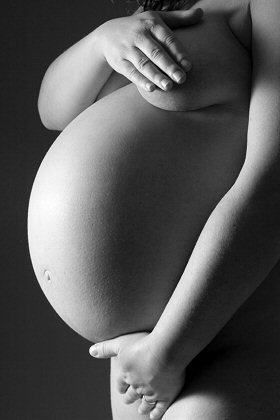 Presenting her findings at the European Society of Human Reproduction and Embryology annual conference, French researcher Dr. St�phanie Belloc told conference attendees of new evidence for male fertility declining markedly after the age of 35. Belloc said that this is the first time such a strong paternal effect on reproductive outcomes has been found.
Presenting her findings at the European Society of Human Reproduction and Embryology annual conference, French researcher Dr. St�phanie Belloc told conference attendees of new evidence for male fertility declining markedly after the age of 35. Belloc said that this is the first time such a strong paternal effect on reproductive outcomes has been found.
Belloc and her colleagues based the study on more than 12,000 couples who attended her clinic for intrauterine inseminations (IUIs) in the period 2002-2006. The sperm of each partner was examined at the time of the IUI for a number of characteristics, including sperm count, motility and morphology. Later, clinical pregnancy, miscarriage and delivery rates were also analyzed.
While the effect of maternal age on the ability to conceive and on miscarriage rates is well known, there is still controversy about effects due to the father's age. Although there are many reports that show an overall decline in sperm counts and quality from decade to decade, up to now there has been no clinical proof that simply being an older man has a direct effect on a couple's fertility. But Belloc's study has now supplied that proof. "We found that the age of the father was important in pregnancy rates - men over 35 had a negative effect," said Belloc. "And, perhaps more surprisingly, miscarriage rates increased where the father was over 35."
"We already believed that couples where the man was older took longer to conceive but a number of reasons had been put forward for this. Neither was there any definite evidence that miscarriage rates increased when the man was older. Some recent studies have established a relationship between the results of IUI and DNA damage, which is also correlated to a man's age, suggesting that it might be an important factor, but until now there was no clinical proof," explained Belloc.
Belloc believes that in light of the new evidence, older couples should consider the use of IVF or ICSI. In IVF, the zona pellucida (the outer membrane of the egg) seems to be an efficient barrier in preventing the penetration of sperm with DNA damage, and in ICSI, the best sperm can be selected for use. These methods, although not in themselves a guarantee of success, may help couples where the man is older to achieve a pregnancy more quickly, and also reduce the risk of miscarriage.
Related:
Aged Sperm Causing Pregnancies To Fail
Older Men's Sperm Often Damaged
More Evidence For Male Biological Clock Revealed
Older Fathers Risk Children With Schizophrenia
Source: European Society for Human Reproduction and Embryology

